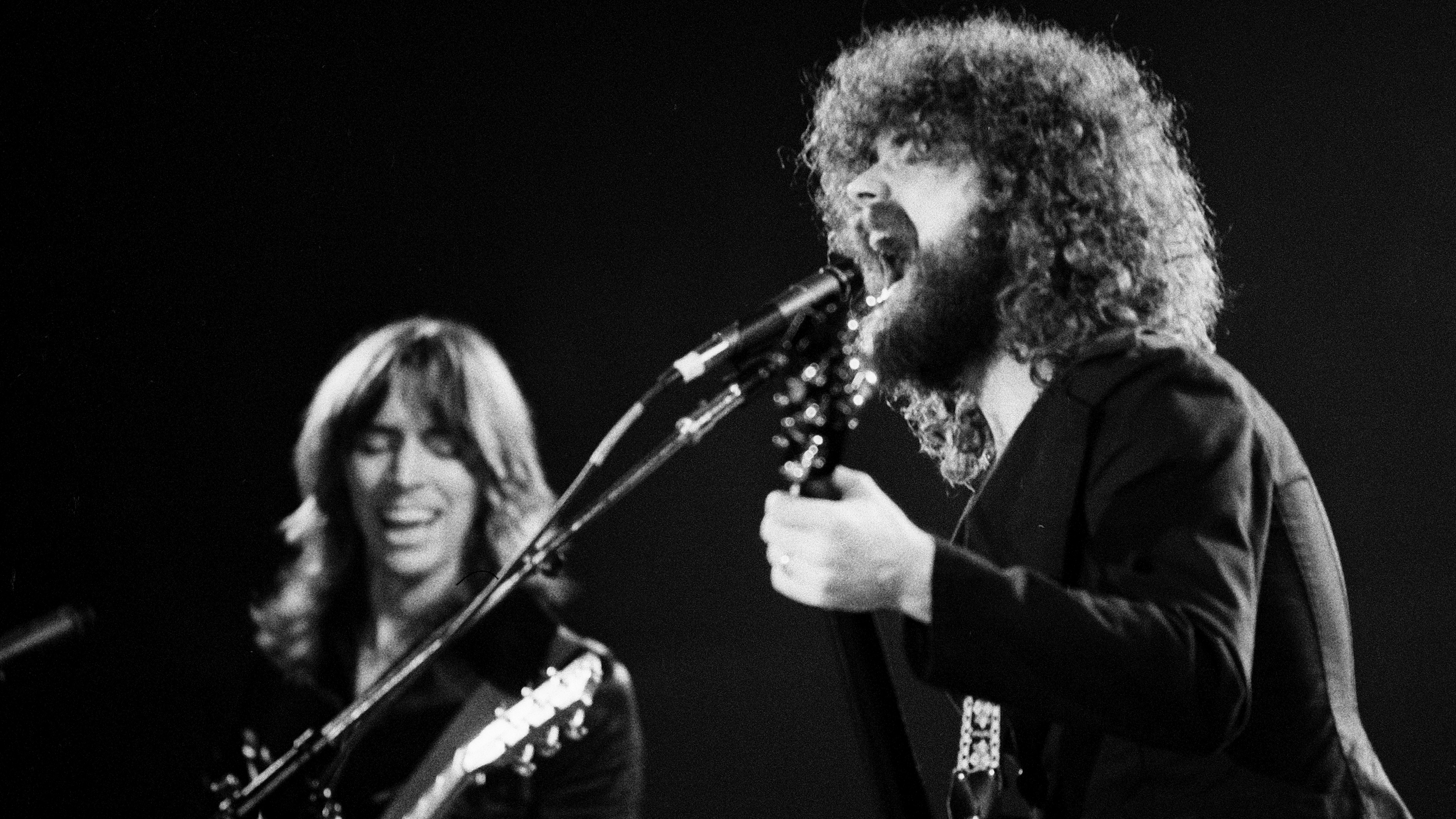Released in August 1976, the debut Boston album sent shockwaves through the music industry. It was a true Cinderella story – a band appearing out of nowhere, turning the world upside down and injecting fresh hope into a scene that was fast dying on its feet.
To achieve this ‘overnight’ success, Boston leader Tom Scholz braved rejection, ridicule, near poverty and endless humiliation. He spent roughly six years ignoring his detractors, hidden in a basement tweaking songs, overdubbing and refining parts until the tapes literally began to disintegrate. Some laughed. Some were worried for his sanity. Most felt that he needed to get out a bit more rather than hang on to a crazy dream that was slowly slipping away. Then, one day, things changed.
This is the story of an unassuming garage musician from Toledo who launched Boston, the biggest new rock band of the 1970s. He was the creator of a hit machine, turning them into an American phenomenon, dominating FM radio by crafting one of the biggest-selling debut albums of all time. Sales to date are in excess of 17 million and still going strong. However, by 1980 Boston had crash-landed, with ex-bandmates embarking on a bitter war of words that still continues 30 years later.
Much has been written about Boston over the years. Scholz has spoken publicly about his tiffs and tribulations, the failure to deliver albums on time and the fact that he appears to be one of the most litigious musicians on the planet. It’s all grist for the mill, of course, but what we all should know is that he’s still toiling away in his home studio in Massachusetts, perfecting songs that he may have started 20 years ago, or even yesterday, but always mindful that they could be better, that the production needs more tweaking or that the arrangements are not truly perfect. It was the same way back in 1970 when, with unfailing determination and singularity of vision, he first set about his original quest for a record deal.
Born 1947 in Toledo, Ohio, Donald Thomas Scholz worked hard to get an education, one that would take him to the prestigious Massachusetts Institute Of Technology (MIT), a teaching and research facility educating America’s best and brightest in science and engineering.
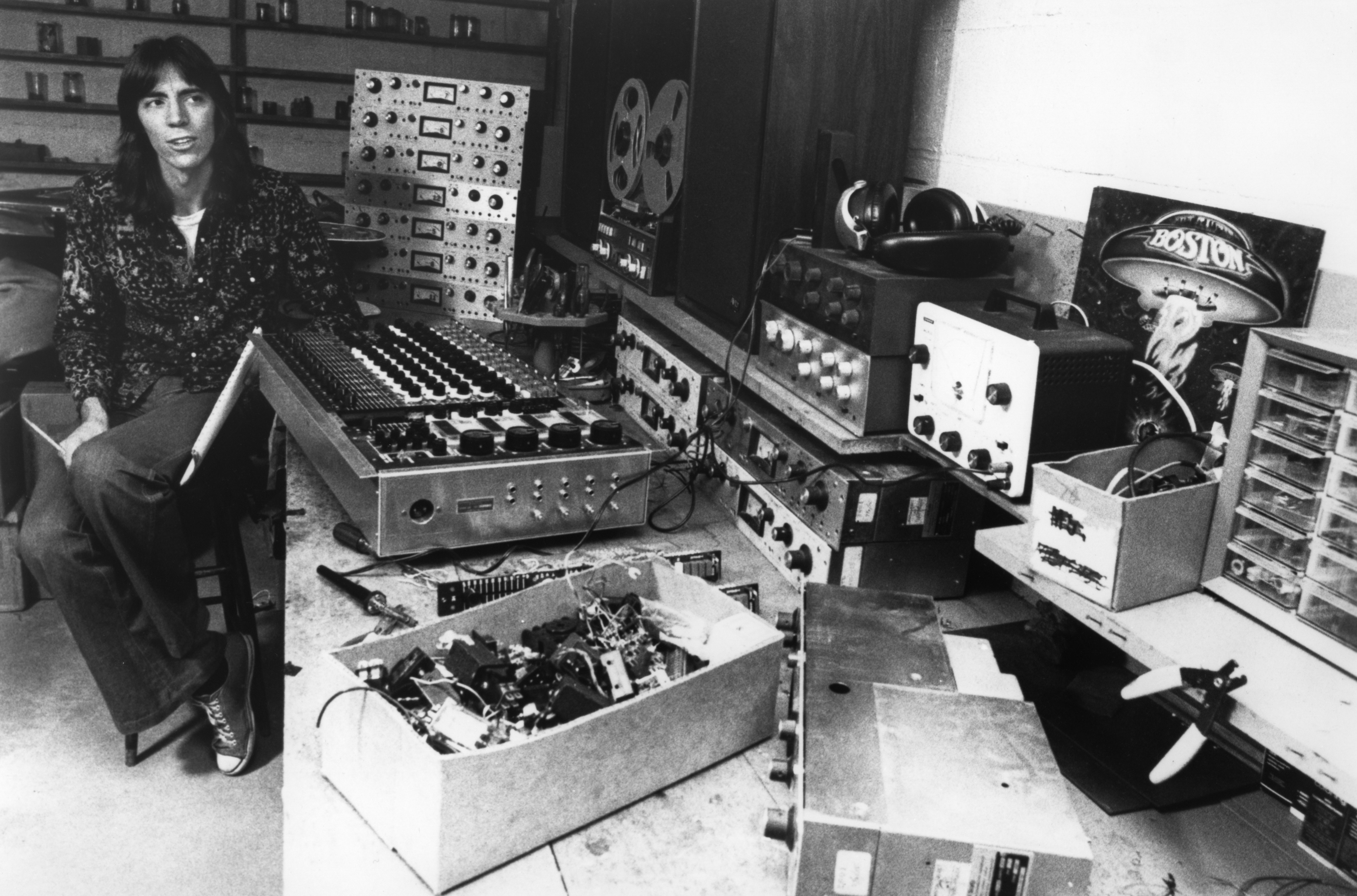
He graduated with flying colours, gaining a bachelor’s and then a master’s degree before taking up a prime position with the Polaroid Corporation as a product design engineer. In many ways it was a dream job for anyone who loved tinkering with electronics, a place where you could have an idea and spend your time figuring out how to make it work. But that wasn’t all that he was interested in. As a young man he’d learnt to play the piano and developed a healthy interest in pop and rock music. Writing songs and playing in a handful of local Boston bands, his thoughts turned to a professional career in music… a dream that would dominate his life for the next six years.
It wasn’t long before Tom sensed a schism between playing live and recording songs. The traditional method of gaining recognition and, in turn, a record contract, was to perform live, playing seven nights a week anywhere and everywhere. Sporting names such as Middle Earth, Freehold and Mother’s Milk, his early bands featured musicians who would later play an important role in the launch of Boston – especially Mother’s Milk, with a line-up that consisted, at various points, of Scholz (playing keyboards), Brad Delp, Barry Goudreau and drummer Jim Masdea. True to tradition, Tom’s early bands initially played the Boston circuit. But, quickly sensing that it was all going nowhere fast, he focused on making a string of demos that would do justice to the sounds he was hearing in his head. Recording in a number of local studios, his efforts to impress initially fell on deaf ears. Spending an inordinate amount of his income on these sessions, it wasn’t long before he had the idea to convert basement space in his Watertown home into a studio.
With his technical know-how and inventor’s panache, the 12-track studio (christened Foxglove) provided him with a perfect place to create, critique and pull apart songs. It was a never-ending quest for perfection all right, one that produced little success as labels continued to pass in droves.
Scholz himself explained: “I had been working for five years at that point and I took all the money and spent it on recording equipment that was good enough to make the demos which landed the Epic Records deal. I had been bumming around playing in local bands that didn’t have a future. I even started a couple of bands myself, but I knew that it was going nowhere unless I started doing it myself. I quit playing with bands at that point, set up in my basement and went to work. I played all of the instruments and by doing that I could finally get everything that I was imagining and hearing. I was never able to do that when I tried to work with other musicians. That was the turning point. It was the old adage: ‘If you want it done right then do it yourself.’ I knew that if it failed then I would have no one to blame but myself.”
Working side-by-side with Tom in the studio was vocalist Bradley Delp, who was in many ways a secret weapon. By day he was a factory worker, making heating coils for coffee machines, but at night he was an amateur vocalist who had been in a number of bands before teaming up with Tom. The other component at this stage was drummer Jim Masdea. Between the three of them, they honed and polished several tracks, including San Francisco Day (later to be renamed Hitch A Ride), It Isn’t Easy (re-titled Something About You), Foreplay (originally composed in 1969), Peace Of Mind, Rock ’N’ Roll Band, Don’t Be Afraid (eventually included on the 1978 Don’t Look Back album) and the final track to be demoed, Ninety Days (later called More Than A Feeling), featuring hand claps from Scholz’s first wife, Cindy.
Scholz on Delp: “I knew Brad could do all the singing and that he would do an awesome job. He did even better than I imagined. He came in after I had all of the instrumental tracks – oddly enough I heard years later that Brad didn’t realise that he was just singing along to a bunch of overdubbed tracks. He thought there had been a band. He wasn’t there for the recording of the instruments – it was just me and the tape deck.”
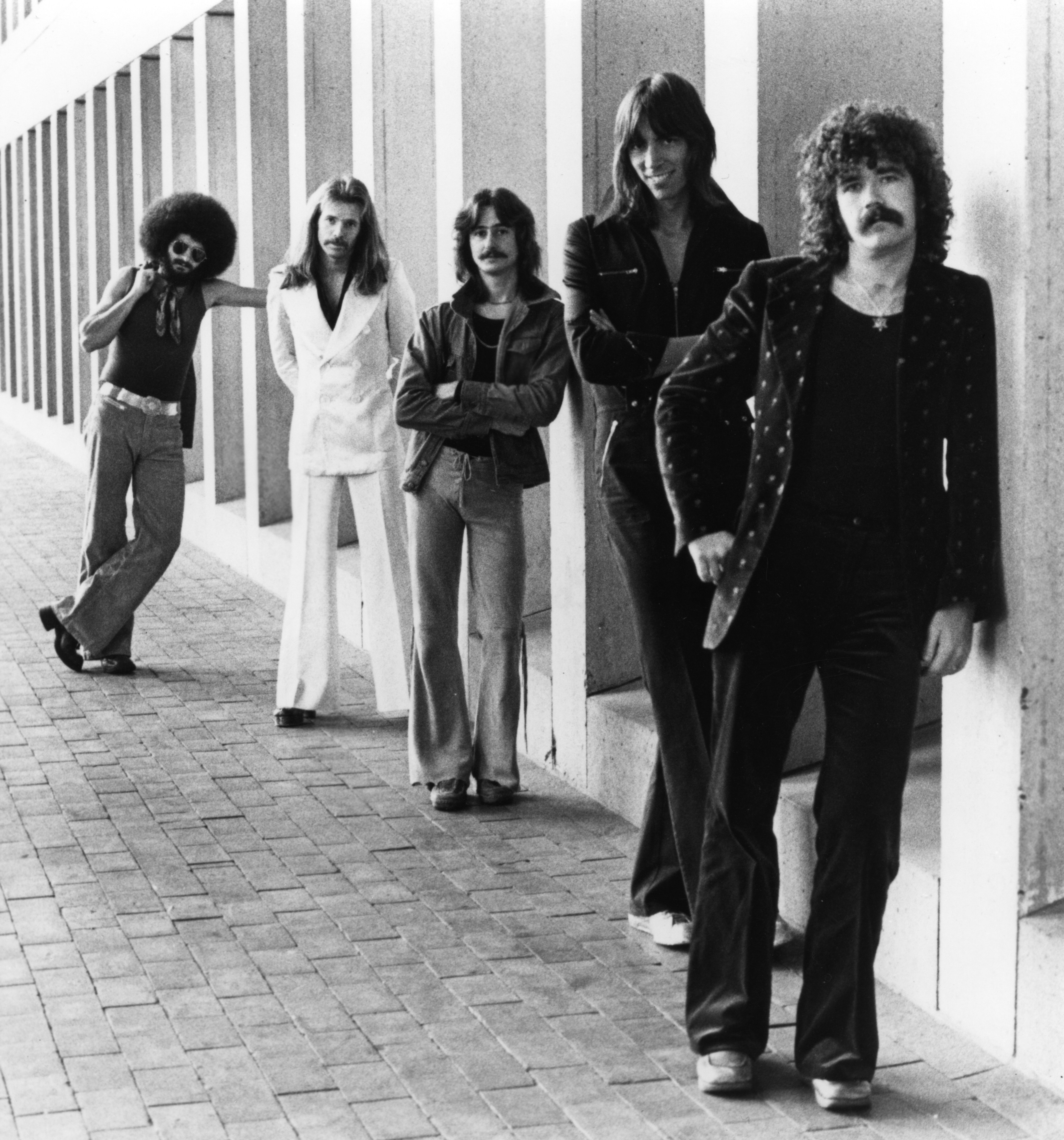
Once again, the demos were summarily dismissed by virtually every label. But out of the blue, in 1975, Scholz was contacted by Charlie McKenzie, then working as a rep for ABC Records, who had accidentally heard the tape in a friend’s office at RCA Records, and Paul Ahern, a former Atlantic Records promotion executive. The duo (operating under the handle of Pure Management) convinced Scholz they could get him a deal and dutifully flushed out Epic Records, a CBS label, as a likely home, a place where they had some influence. Epic then listened to the demos with fresh ears and were keen to be involved – but they wanted to see the band play live before committing to a deal.
Epic staff producer Tom Werman recalls the moment the label heard the demos: “A&R chief Lennie Petze knocked on my office door, introduced me to manager Paul Ahern, and asked if I wouldn’t mind listening to something. We went into our boss Steve Popovich’s office next door and put the demo cassette on.
“After More Than A Feeling, which sounded quite like the final product, and halfway through the second song, I stopped the tape. I couldn’t believe that this music was actually available to us, and told Ahern that if Lennie and I could see the band reproduce this music live, we guarantee to sign them. I called Popovich immediately, and when he heard our enthusiasm, he agreed to this course of action.
“We were delighted at our good fortune, and were even more surprised when a smiling Ahern informed us that we were his last stop in New York, as every other label had passed on the band.”
For Scholz and Delp, showcasing for Epic was a major hurdle to jump as a band didn’t actually exist – in fact, they didn’t even have a name for the project – so they quickly rounded up some fellow musicians from the Boston scene who had been close to them over the years.
Renting a warehouse space (belonging to Aerosmith) the ‘band’ – consisting of Tom Scholz, Brad Delp, temporary drummer Dave Courier, bassist Francis Sheehan and second guitarist Barry Goudreau – showcased for Epic, passing with flying colours. They were duly signed, albeit a few months later, to a 10-album contract, deliverable in just six years (industry standard at the time), but with the project still unnamed and with only two signatories – Scholz and Delp.
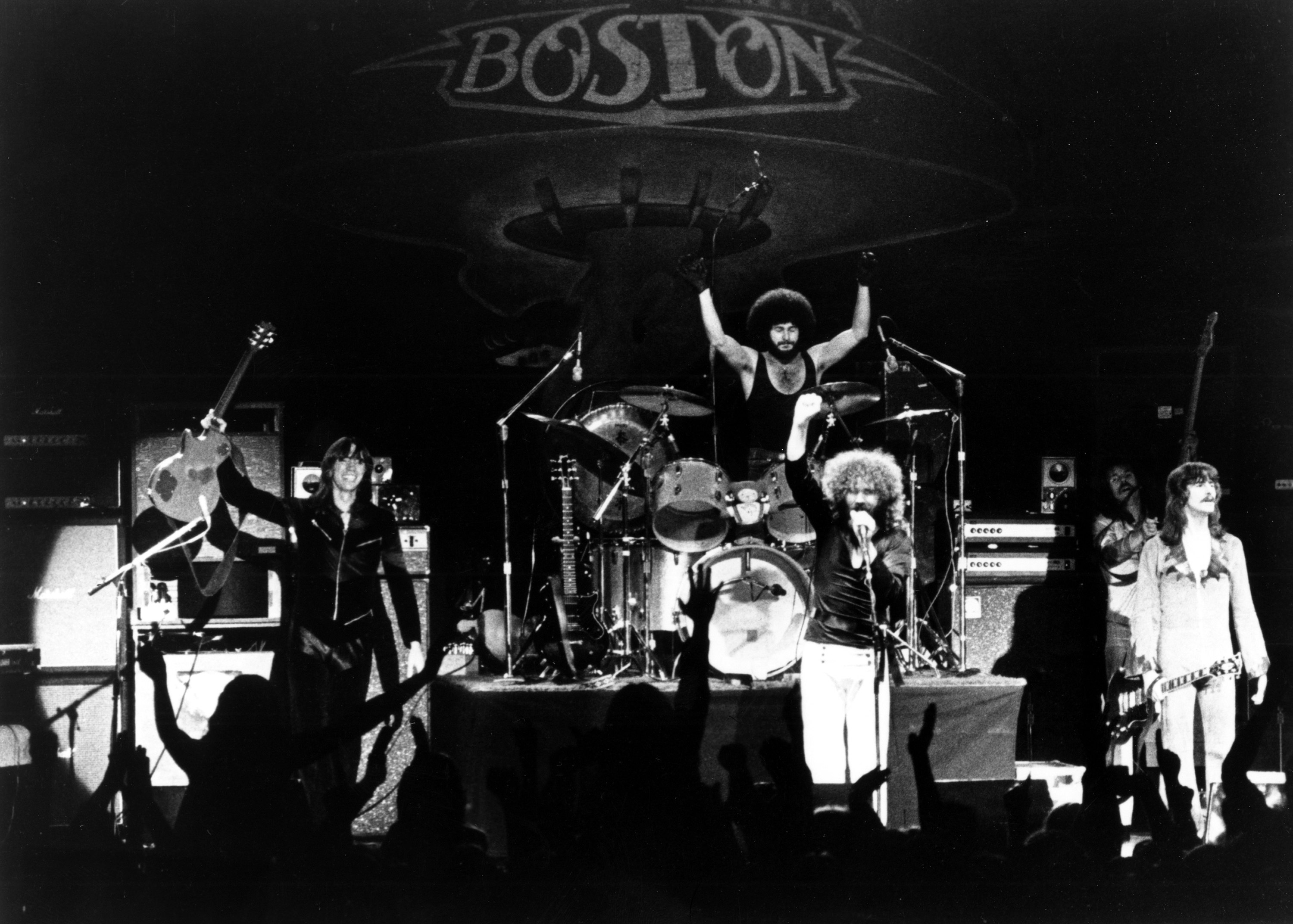
The signing was great news following the six years of heartache that had preceded it, but it didn’t come without a price. First, Ahern and McKenzie insisted that they change drummer, so longtime associate Jim Masdea was cut loose, much to Scholz’s chagrin, although in mitigation Jim had been talking about leaving for some time (he was eventually brought back into the fold in the 80s) and Sib Hashian was hired to take his place.
Second, for some crazy reason (rumoured to be because of union regulations) Epic insisted that although the demos sounded great, the band could probably benefit from the assistance of a seasoned producer to help them complete the project. Scholz was understandably aggrieved at the suggestion but went ahead with the request in an effort to pacify the label, figuring that this was not the time to throw a spanner in the works.
Epic’s A&R team suggested John Boylan, an experienced studio hound but mostly in the country rock genre. Scholz went to meet him, laid his cards on the table and, much to his surprise, the duo struck up a cunning ruse. Boylan agreed that the demo tapes were pretty sensational (and you can hear those recordings on a bootleg album Honest, I Found It In The Trash Can) and that re-cutting the tracks was, in-effect, pointless. It was agreed that Scholz was capable enough to finish the existing tracks alone in his home studio while Boylan would take the band out to LA and record a new track and apply vocal overdubs. It was a diversionary tactic that worked extremely well. In an even more altruistic move, he agreed to split the producer’s royalty with Scholz.
So, back at Foxglove, Scholz hunkered down to complete the demos. In fact, 90 per cent of the finished Boston album consists of the original, but enhanced, demos with only one track, Let Me Take You Home Tonight, recorded in LA featuring all five members of the newly inaugurated band. The LA sessions were validated and completed by a visit from Scholz before final mixing at Westlake Studios on Wilshire Boulevard.
Years later, Tom would reveal the true extent of the subterfuge…
“There were only two performers signed to make the debut album in the original Epic Records agreements, Brad and myself, because we wrote all the music for the album, recorded the six demo songs that landed the deal, produced them in my basement, and funded all of it from my Polaroid salary.
“The funny thing is, Epic thought it was being re-recorded by a real producer in a studio somewhere. The only difference is that Sib Hashian played the drum tracks on those versions. I did the same thing, I went back to work and I played all of the parts myself. When you hear More Than A Feeling, that is a couple of weeks of me relaying the guitar tracks down just the way I did on the demos. Brad did the same thing with the vocals. It was done entirely like the original but the record company didn’t know it.
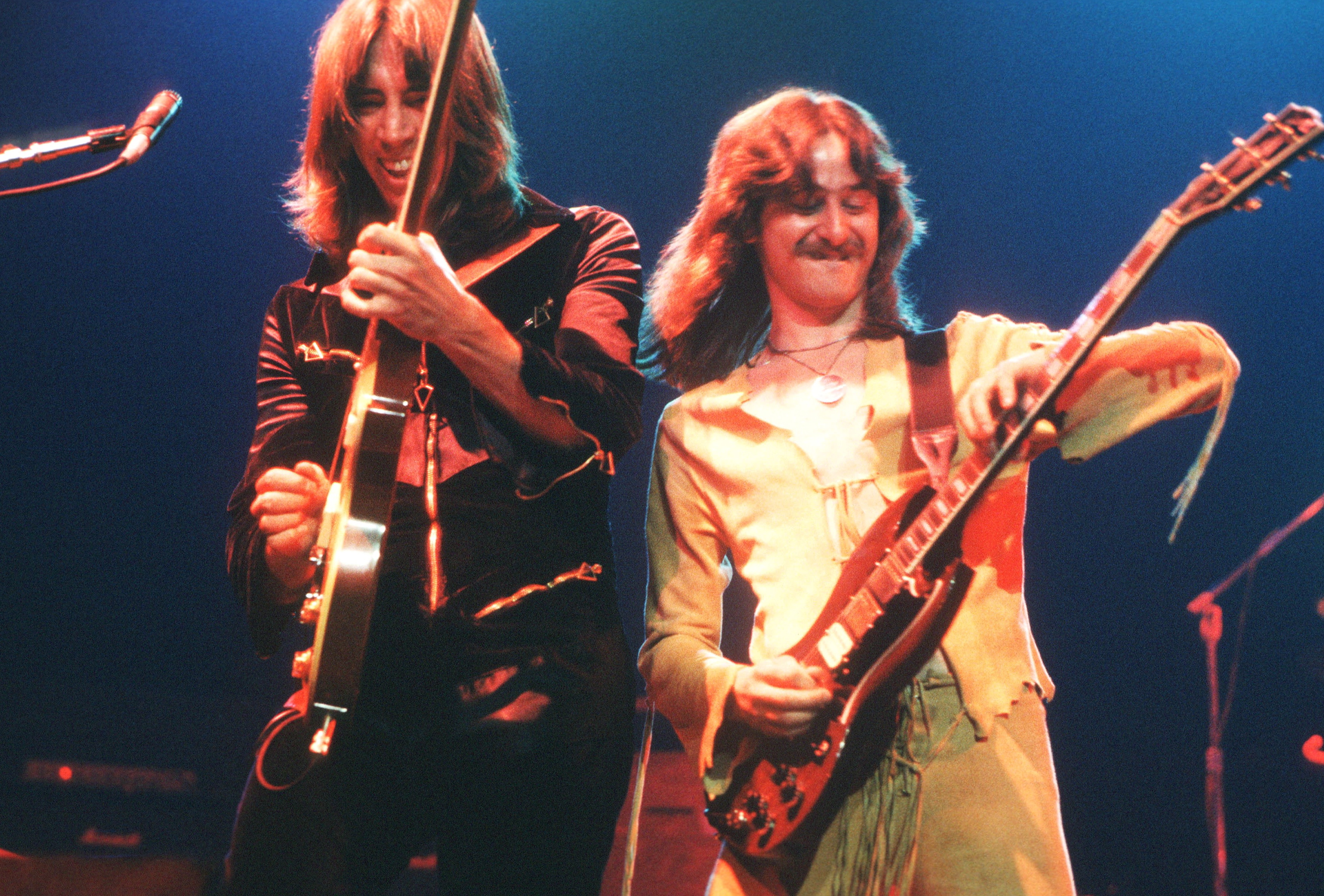
“I think it is very hard for people to get their head around the idea that this band was actually some guys overdubbing in a basement. They like to think that a band plays together and hangs out and writes songs and gets a contract and goes into the studio and then they jam out in the studio and an album comes out of that. This was not like that at all. It was many, many years of long nights playing along with a tape deck.
“The only other person who helped make those demos was drummer Jim Masdea, who was the drummer for every demo I sent to record companies back in the 70s.”
With the record in the can, the band still lacked a name. It was producer Boylan and his engineer Warren Dewey who suggested Boston. Released in August 1976 (though the UK would have to wait until January 1977), Boston exploded out of the box, becoming the fastest-selling record of the decade, being further propelled by the single More Than A Feeling. Housed in an eye-catching sleeve, featuring giant guitar-shaped spaceships leaving behind a dying planet, the music captured the imagination of a public looking for a new, more cutting-edge sound.
The guitars sounded like nothing that had been heard before, dense and full of rich sustain. Delp’s vocals were a revelation, from heavenly whispers to piercing highs. The songs, honed to perfection by Scholz over the last seven years, were immaculately arranged and brilliantly executed. It was, in effect, a coup d’état of the most magnificent kind.
The more the record sold, the more Boston’s touring schedule increased. Starting with club gigs they rapidly graduated to better support slots, opening for Foghat, Black Sabbath, Robin Trower and Blue Öyster Cult. Once those couplings had been exhausted the band headlined sports halls, coliseums and then arenas. It was a dream come true – but, for Scholz, another black cloud was looming. Epic leaned on him for the next album but in his eyes it was too much too soon. Ever the perfectionist, he took umbrage at the demands but dutifully returned to his new, improved, 24-track home studio (now christened Hideaway) and set about crafting a follow-up, the somewhat listless Don’t Look Back album.
Scholz felt the pressure and delivered what, in effect, was half a record. Sure, the songs that eventually made the album were fully formed in the image of Boston but, weighing in at just 29 minutes long, it was clear that something wasn’t quite right.
“Don’t Look Back was rushed,” Scholz revealed later, “even though it came out a year after the record company wanted it. I let it go early and that meant I wasn’t satisfied with some of it. Next time I’m not going to listen to anybody.”
- Buyer's Guide: Boston
- Scholz loses court case over Delp death claims
- Journey: a guide to their best (and worst) albums
- Why I love Boston's debut album, by Trivium's Paolo Gregoletto
Released in August 1978 , a full two years after their debut, the album was, nonetheless, rapturously received, occupying the No.1 spot on the US album charts and going on to sell in excess of seven million copies, helping to consolidate Boston’s appeal as one of – if not the – greatest rock bands of the 1970s. Tracks such as the title song, Feeling Satisfied, It’s Easy and Party all had the signature sound. Pristine production, humongous orchestral guitars and stupendous vocals projected the melodies toward the stars and beyond. Every part of the process appeared to be so effortless. Yet on closer inspection the arrangements represented an unimaginable amount of toil, Scholz’s painstaking approach giving the material a familiar, lived-in feel that belied the effort involved.
The Don’t Look Back tour lasted for nearly two years, starting in the USA and taking in, for the first time, Japan and Europe. In an audacious move, Boston even had a specially commissioned 40-foot long pipe organ constructed (named ‘Bernie’ by band and crew) at a reputed cost of $100,000. The final leg of the tour landed in the UK during late October 1979, and I saw the band play (with Trickster opening) at the now defunct Rainbow Theatre in Finsbury Park, north London. I’d love to report that it was a life-changing experience but the kindest description would be ‘underwhelming’. Unfortunately, the PA seemed inadequate and unable to cope with the dense barrage of guitars. Even the huge pipe organ sitting at the back of the stage set was for the most part inaudible. That tour was the first and last time Boston would play the UK. In fact, they were the last shows the original band would play together.
Revealed Tom at the time: “When I got off the road, I wasn’t sure that I wanted to ever go on tour again. Brad told me that he didn’t ever want to go on tour. I was going to hang it up and just record. I took a little time off after Don’t Look Back. I was drained. I was more than drained, I was demoralised. I wasn’t sure I wanted to be in the music business. I didn’t like what I had seen. Brad and I had made a lot of money for a lot of people and I didn’t like what they were doing. I began to feel guilty about enabling people to do things that I didn’t approve of. I considered leaving music altogether and going back to being an engineer.”
To complicate matters further, at this point Scholz entered into the first of several major lawsuits, firing manager Paul Ahern (Charlie McKenzie had already departed the scene), which resulted in years of legal wrangling. To his horror, Scholz had discovered the original contract provided Ahern with a cut of the songwriting royalties. Ahern counter-sued for breach of contract but lost his case in 1994.
Because of the management dispute, and feeling fatigued and somewhat abused by CBS, Scholz placed Boston on ice in 1980, calling a band meeting where he announced there would be no more activity in the near future and that the various members should feel free to explore other opportunities. Guitarist Barry Goudreau was the first to take up the challenge, securing a deal with Epic and recording a solo album featuring members of Boston, together with vocalist Fran Cosmo (Francis Cosmo Migliaccio), a man who would go on to join Boston as lead vocalist. Goudreau’s self-titled album was a masterful composite of the Boston sound (four songs were even co-written with Brad Delp), receiving critical applause and strong out-of-the-box sales. Sadly, all was to come crashing down. Scholz became incensed by an advert CBS ran in Billboard, with the tag line: ‘Twelve million people know the sound of this guitar. We’d like to introduce you to its owner.’ Tom complained to Epic who, naturally, ran scared of the implications for the delivery of future Boston records.
In the meantime Scholz turned his attention to inventions, setting up a company labelled SR&D (Scholz Research & Development) to design and manufacture devices for musical instruments. These include renowned guitar accessories the Powersoak, the Doubler and, his most successful contraption, the Rockman (used by artists including ZZ Top, Journey and Def Leppard); devices that, even for rank amateurs, mimicked the dense Boston guitar sound.
It appeared Scholz could do no wrong, except that his apparent frustration with CBS was taking on an even darker twist. The label ratcheted up the pressure to deliver a third Boston album by unwisely squeezing his royalty stream from the two previous albums. The idea was that by denying him cash flow he would be forced to complete a new record. For Scholz, this was like holding a red rag to a bull. He steadfastly refused to bow to pressure, so CBS took matters to another level and sued Scholz for breach of contract (sums reported vary from $20 million to $60 million), stating that he was ‘creatively uncooperative’. At this point Scholz said he would never work with Epic again and set in motion a series of events that would lead to the third Boston album being released by the MCA label. This was in part achieved by counter-suing CBS for unpaid royalties. CBS also filed suit with MCA, issuing a cease-and-desist notice, demanding a huge advance from MCA and a royalty of 25 cents per record sold.
In April 1985 a NYC judge moved that the CBS suit was without merit, allowing Scholz leave to negotiate with another record company. Amazingly, the CBS lawsuit actually dragged on for another five years where, in a bitter showdown, Scholz and CBS/Sony president Walter Yentnikoff came face-to-face in court. The jury found in favour of Scholz, allowing him to receive his back royalties together with millions in punitive damages.
Tom was also fighting battles on other fronts, notably with members of the band who were looking to secure more of a say in Boston’s recordings. It was clear that the band was never going to function as a harmonious unit anymore, Goudreau being the first to seize the opportunity to reach a settlement, officially leaving in late 1981 and going on to form Orion The Hunter with vocalist Fran Cosmo.
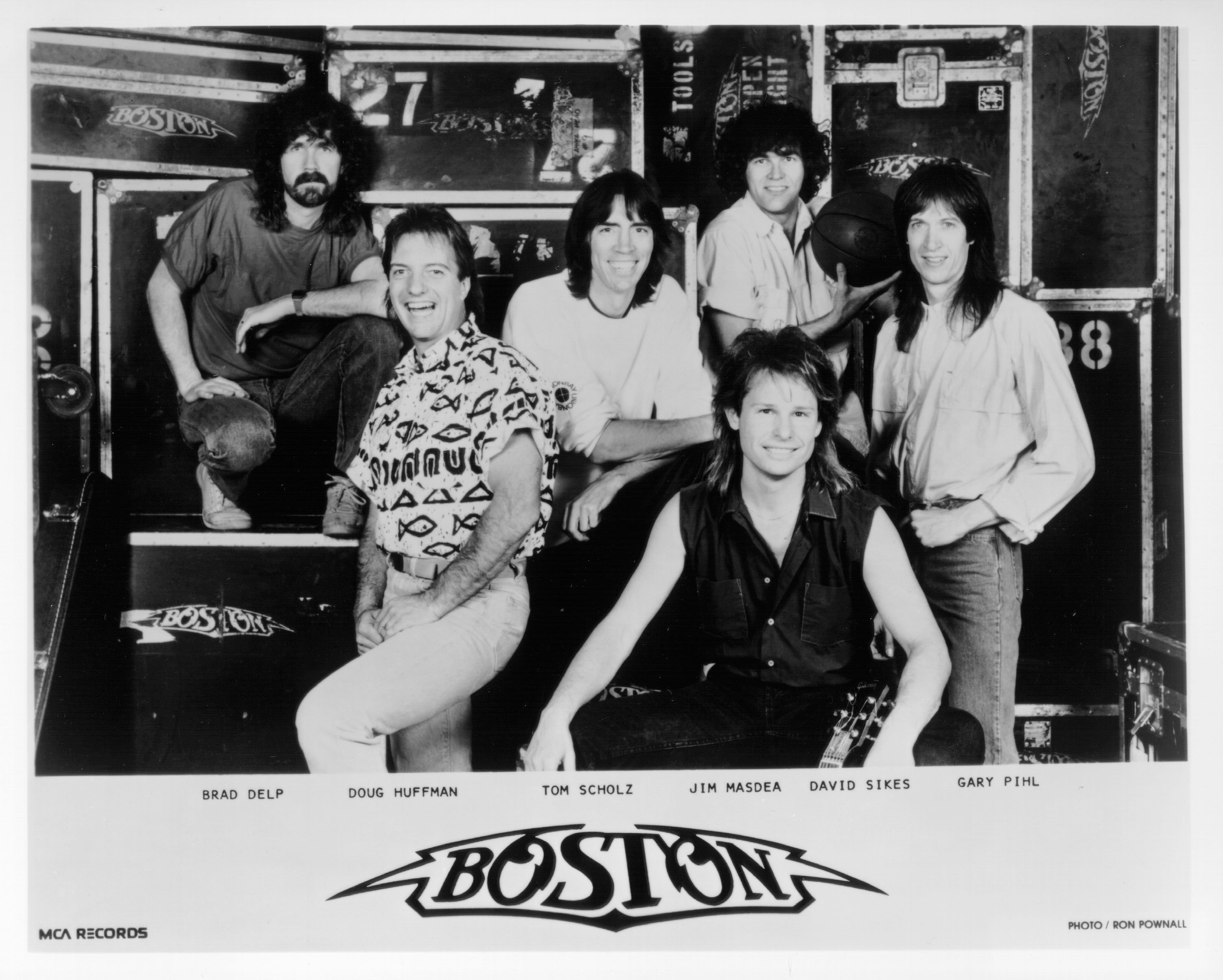
Tom’s point of view: “Concerned about egos, back in 1976 I naively suggested to Brad that we pay Barry Goudreau a share of the record royalties equal to ours, not just for the two cuts he played on, but for every song on the album. After performing with Boston a scant three years, Barry left to pursue a career separate from mine, but he kept his share of royalties for all the songs he was not involved in recording, and has continued to collect for the past 30 years.”
Boston’s Third Stage album was eventually completed and released in September 1986, a full eight years after Don’t Look Back. Not unexpectedly Scholz wrote and played on most of the tracks, bringing his friend and drummer Jim Masdea back into the fold, together with new guitarist Gary Pihl from Sammy Hagar’s band. Tom had produced a track for Hagar’s 1980 album Danger Zone, before CBS vetoed any more involvement, going on to hire Sammy’s former road manager Jeff Dorenfeld as Boston’s new manager.
Third Stage went platinum four times over, producing the heart-rending ballad and No.1 hit single Amanda (written as far back as 1980). A concept of sorts, the album told the story of the three stages of life, from infancy through teenage years and into adulthood. A slight departure from the bluster of the previous two albums, Third Stage presented a mature and melodic sound, although tracks such as We’re Ready, I Think I Like It and, especially, Cool The Engines were certainly cut from the same cloth. However, the main question being bandied about by most long-terms fans was whether Scholz had softened his approach, as there was a definite sense of departure from the original model. Playing the album in its entirety, however, the subsequent tour found the band selling out concert arenas to ever-increasing audiences.
Looking forward to the 90s, recovering from his legal battles and setting up a charitable foundation (DTS, through which Scholz – a vegetarian – raised and donated millions of his own dollars to humanitarian and animal causes), Tom went back into his home studio to work on songs for the next Boston album. But there was a traumatic and potentially catastrophic development when Brad Delp tendered his resignation. This move was further complicated by the fact that Delp had thrown his hat into the ring with RTZ, Barry Goudreau’s new band.
In a bizarre, yet somehow logical solution, Scholz hired former Orion The Hunter frontman Fran Cosmo as Delp’s replacement. Cosmo had received plaudits from Boston fans for his work on the Orion The Hunter album as well as the Barry Goudreau solo record, so his assimilation into the Boston line-up would make for a smoother and potentially less hostile transition than the appointment of a newcomer. Delp’s achievements had cast a long and impressive shadow over the years but at least this move gave the impression that matters were being kept in the Boston ‘family’.
The resulting album, titled Walk On and issued on the MCA/Giant label in June 1994, was a powerful collection of tracks leaning closer to the vibe of Boston’s first two albums. One thing was for sure: Scholz had set the guitars to stun by including a number of seriously damaging hard rock tracks, including I Need Your Love, Surrender To Me and the amped-up title track. Also of note is the Deep Purple pastiche Get Organ-ized, which has its roots in the instrumental composition Foreplay from Boston’s debut album, but served up with heavy-duty riffage and a scorching Hammond solo in the vein of Jon Lord. Subsequently, with RTZ stalling at the box office, Delp opted to rejoin Boston just in time for the band’s Walk On tour, co-sharing lead vocals with Fran Cosmo. It was an unusual approach, but greeted with open arms by the band’s legion of supporters, helping to paper over the relative lack of commercial success of the album which, despite a concerted promotional campaign, only managed to achieve single-platinum status.
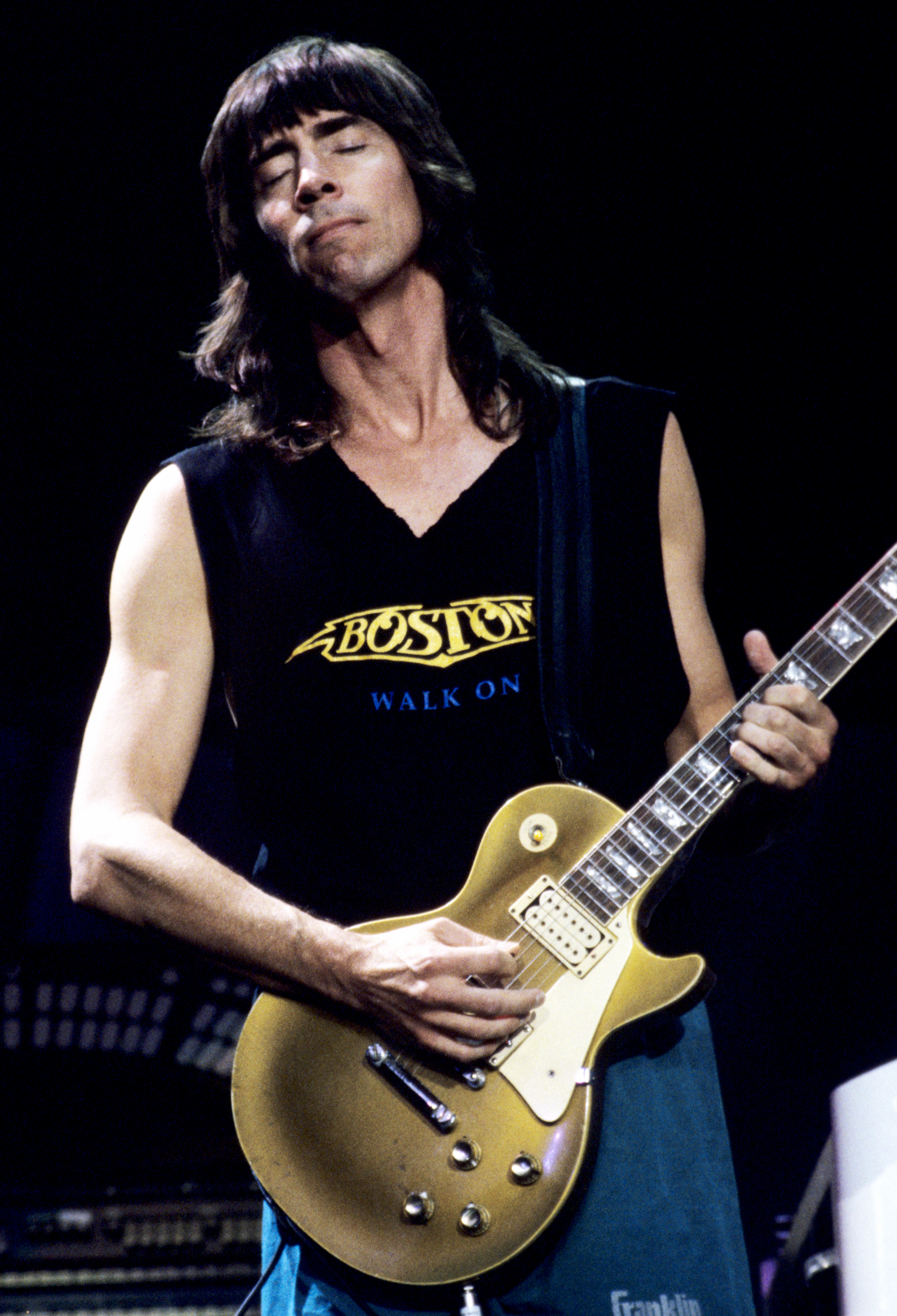
Apart from a greatest hits collection titled, rather succinctly, Boston: Greatest Hits, featuring three newly recorded tracks, it would take Tom Scholz another eight years to prepare the band’s next album. Nothing unusual with that, of course, but in the music business time is never on your side. Music styles had come and gone. Grunge, for example, had pretty much wiped traditional hard rock and classic rock from the surface of the planet, leaving Boston and their ilk in a very vulnerable position indeed.
It was with this thought in mind that the title track of the band’s next album, Corporate America, was given a stealth release under the pseudonym of Downer’s Revenge. It was an attempt to present new music to the public and the critics without the Boston name unduly influencing its reception. There was also a possibility of turning on younger music fans who may not have given the track a fair hearing if it was labelled Boston.
Corporate America was released in 2002 on the short-lived independent label, Artimis, run by former Nirvana manager Danny Goldberg. Perhaps this new home may have elevated the band’s ‘street-cred’ appeal, an attempt, if you will, to align with hipsters. Sadly, it was a move that made little sense as the album was virtually ignored by the public, only to be then quickly forgotten by the label. Scholz was so incensed that he returned to familiar surroundings, the law courts, suing for breach of contract, citing failure to properly promote the album. For many, the record itself was a distant cousin of Boston’s glory days. The songs are melodic but not memorable enough and Delp’s signature vocals seem underutilised. For some, the train had long departed the station.
Boston continued to tour, keeping the brand alive and enlisting numerous musicians, including, at one point, the unlikely presence of ex-Stryper member Michael Sweet to sing and play guitar.
On March 9, 2007, however, Boston faced their darkest day with the tragic suicide of Brad Delp at his New Hampshire home. He was found by his fiancée Pamela Sullivan, having succumbed to carbon monoxide poisoning. Several suicide notes had been left around the house. It was a terribly sad ending for an exceptionally gifted man who had given so much joy to the world. Delp had, seemingly, appeared from nowhere, brandishing one of the greatest rock voices ever heard, establishing him as the signature vocal of a band that changed the face of music. Like every suicide, this act of desperation provoked more questions than answers. But ultimately it was the sadness of a man so wracked with pain that it robbed him of his life.
Millions of fans the world over were shocked, as was every individual who had worked with Delp or played in the band. Putting aside the whys and wherefores of the circumstances, the entire Boston music community was stunned by its consequences. Sadly, and inevitably, accusations and counter-accusations were bandied about. Those directly involved, and even those far removed from Delp’s life, began pointing fingers – a great deal of those in the direction of Scholz. The inference was that he had somehow contributed to Delp’s depressed state of mind by way of his authoritarian control of the band, hiring and firing at will and corralling the musical direction as he saw fit, leaving Delp feeling marginalised. It was also suggested that Brad had been tormented by his piggy-in-the-middle role between original band members and Scholz.
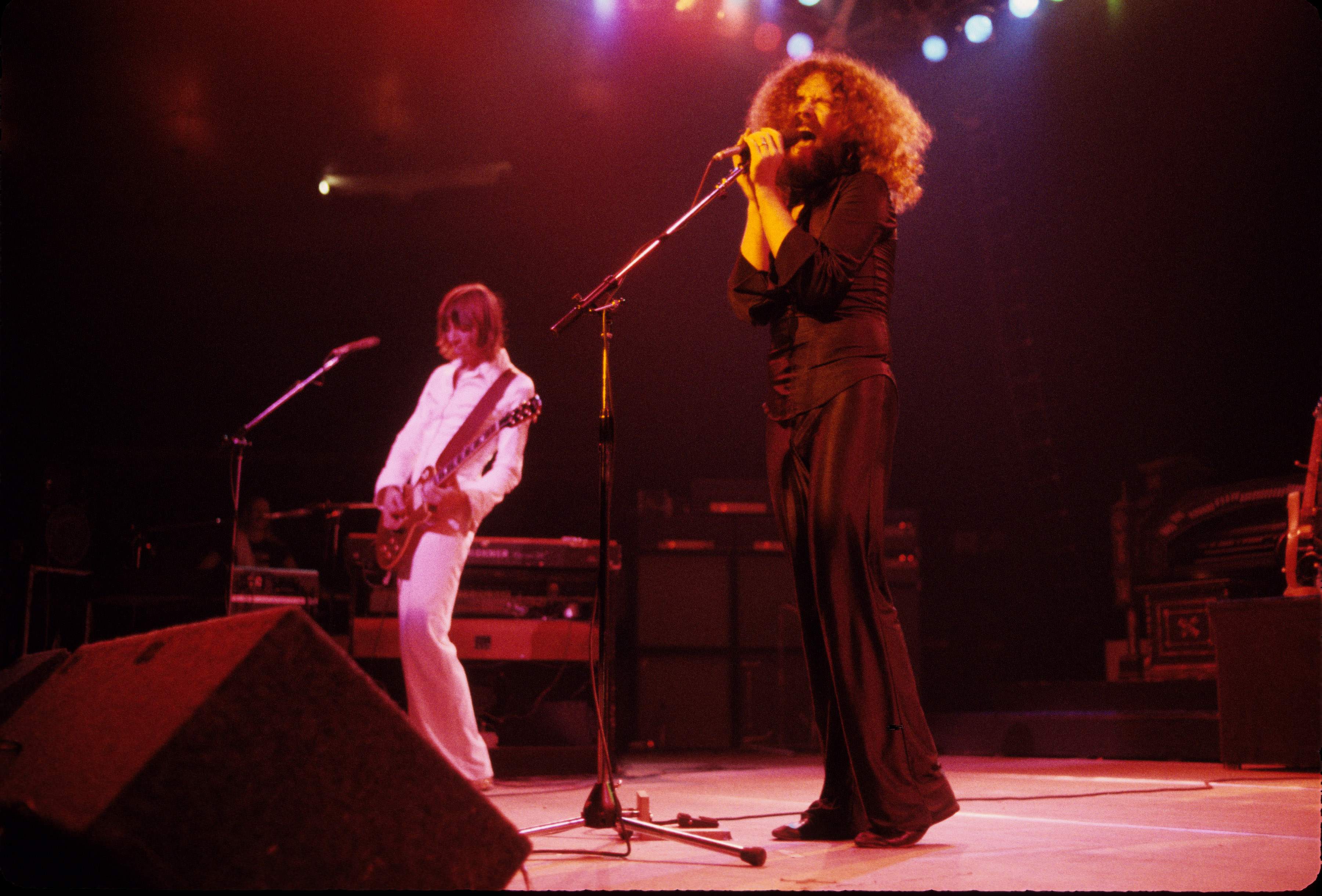
Naturally, Scholz refuted these accusations, pointing out that Delp came and went from the band as he pleased and that the two had enjoyed huge success as a team rather than individuals in opposition. Chief among Scholz’s detractors was Delp’s former wife Micki and several former bandmates, who intimated that Scholz undermined Delp with his actions. Matters were further complicated after Micki, presumably in the throes of extreme grief at the time, aired her thoughts to respected newspaper the Boston Herald, which ran a report. It was a move that triggered Scholz to set in motion yet more lawsuits, this time aimed at Micki and the Herald, citing defamation and significant emotional distress.
Matters came to an even more shocking head when court papers revealed that Delp had been found to have used a hidden camera to film Pamela Sullivan’s sister Meg in her bedroom during February 2007, this revelation occurring just days before his suicide. Scholz, understandably, points to this event and trauma as reason enough for Delp’s subsequent actions.
In 2007, Boston organised a special concert under the banner of ‘Come Together: A Tribute To Brad Delp’, featuring numerous local musicians and the then-current version of Boston. All former band members attended and played – but tellingly, it was only drummer Sib Hashian who refused to take the stage with Scholz. One of the vocalists tapped to sing Delp’s parts was Tommy DeCarlo, a young, previously unknown, singer from North Carolina, who was unearthed via his MySpace page, singing Boston songs with uncanny accuracy to Brad Delp.
Scholz has subsequently continued to muster the band for live shows in North America, including a huge tour over the past summer. Members come and go, Scholz again utilising two lead vocalists, namely David Victor and Tommy DeCarlo, together with former Jo Jo Gunne drummer Curly Smith and another recent member of Stryper, bassist Tracy Ferrie. Rumours abound that Tom has been crafting a new Boston album although, true to tradition, details of a release date, what label will release it or exactly who will be involved are as sketchy as ever.
One thing is for sure, it looks unlikely that Tom Scholz will ever deliver a record that he’s not completely happy with. To this day the man remains a perfectionist with a single-minded vision. He makes other supreme guardians of their band’s cause – Metallica’s Lars Ulrich springs to mind – look like apathetic layabouts. Tom is as much of a mad scientist as he is a musician. To him, Boston is more than a feeling. It’s a one-man mission to achieve greatness, at whatever cost.
For more on Boston and ten of their greatest songs, then click on the link below.
